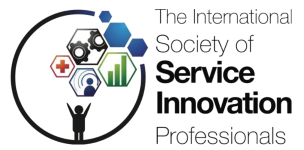 Dr. Gerhard Gudergan
Dr. Gerhard Gudergan
Deputy Managing Director, Head of Department, Business Transformation, FIR Institute for Industrial Management, RWTH Aachen University
email: Gerhard.Gudergan@fir.rwth-aachen.de
Dr. Gerhard Gudergan Deputy Managing Director and Head of Department, Business Transformation at FIR Institute for Industrial Management at RWTH Aachen University. Dr. Gudergan is the founding director of the CENTER SMART Services on the RWTH Aachen Campus and acting head of the initiative METROPOLITAN CITIES. He is senior lecturer at RWTH Aachen University for “Service Design and Engineering” and responsible for the track of “Digital Transformation” as part of the Executive EMBA of RWTH Aachen University and Fraunhofer Academy.
He is a member of different expert groups on service science and service innovation and standardization. He has been a contributing member of the ISSIP Service Innovation Framework SIG and the ISSIP Strategy Council since 2014 and 2016 respectively. He is also a full member of the Working Group 5.7 of APMS within IFIP. His research interest is focusing on digital transformation and data-based innovation and ecosystems.
He holds a Ph.D. in Mechanical Engineering from RWTH Aachen University and a Masters in Mechanical Engineering from RWTH Aachen University.
Position Statement:
Under my leadership, ISSIP will continue to grow into an organization which is meaningful and relevant for its members and other stakeholders. The relevance of ISSIP as a platform will be increasingly determined by the value derived by the various stakeholders. It will further be determined by its ability to provide guidance to various industries and institutions to innovate and transform for the future economy and society. In order to increase the particular relevance and attractiveness of ISSIP for current and future members, I will lead ISSIP to achieve the following goals:
1. Enhancing knowledge access and exchange for members, and
2. Achieving opinion leadership in stakeholder relevant themes, and
3. Explore cooperating with standards setting institutions for impact generation and
4. Designing an ISSIP-driven qualification program.
A specific measure to achieve the first two goals is to design an ISSIP-led conference program which could be driven by great societal and economic challenges such as mobility, health, education. In order to achieve the third goal, specific partnerships could be initiated whilst linking the activities into the current ISSP publication series. A specific measure for the fourth goal will be the concept for an ISSIP academic program including curricula and strong potential partnerships to implement. Current and future ISSIP SIGs will have important roles for implementation.
5. A fifth goal I will lead ISSIP to achieve is to create a revenue stream based on well specified and differentiated membership offerings for investment in ISSIP programs.
